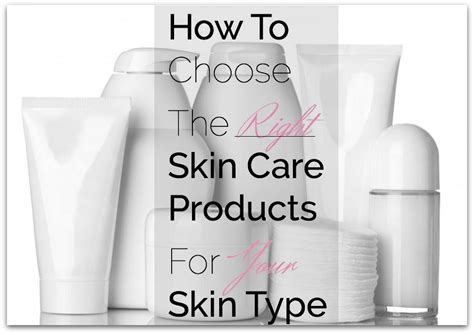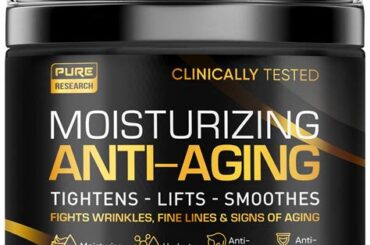Identifying your Skin Type
When it comes to taking care of your skin, one size does not fit all. Each individual has a unique skin type, which requires different care and attention. Identifying your skin type is the first step towards establishing a personalized skincare routine that suits your specific needs. By understanding your skin type, you can choose the right products and treatments that will help you achieve a healthy and glowing complexion.
There are five main skin types: normal, oily, dry, combination, and sensitive. Normal skin is well-balanced, with a smooth texture and barely visible pores. It is neither too oily nor too dry. Oily skin tends to have an excess production of sebum, leading to a shiny and greasy appearance. Pores are usually enlarged, and acne breakouts are common. Dry skin lacks moisture and can feel tight and flaky. It often has fine lines and wrinkles, and pores are typically small. Combination skin is a mix of oily and dry areas. The T-zone (forehead, nose, and chin) is usually oily, while the cheeks are dry. Lastly, sensitive skin is easily irritated and prone to redness, itching, and reactions to certain ingredients.
Identifying your skin type can be done through a simple observation of its characteristics. Start by cleansing your face with a gentle cleanser and pat it dry. After waiting for about an hour, observe the condition of your skin. If it feels comfortable with no signs of oil or dryness, you likely have normal skin. If your face looks shiny and feels greasy, you have oily skin. On the other hand, if your skin feels tight and looks flaky, you have dry skin. Combination skin can be identified if your T-zone is oily, and the rest of your face feels dry. Finally, if your skin becomes easily irritated and reacts to most products, you have sensitive skin.
| Skin Type | Characteristics |
|---|---|
| Normal | Well-balanced, smooth texture, small pores |
| Oily | Shiny and greasy appearance, enlarged pores, acne-prone |
| Dry | Tight and flaky, fine lines and wrinkles, small pores |
| Combination | Oily T-zone, dry cheeks |
| Sensitive | Easily irritated, prone to redness and reactions |
Once you have determined your skin type, you can make informed decisions about the products and ingredients that will work best for you. For example, individuals with oily skin may want to look for oil-free or mattifying products to control excess sebum. On the other hand, those with dry skin should focus on hydrating and moisturizing formulas to combat dryness and improve elasticity. It’s important to choose skincare products that cater to your specific needs to achieve optimal results.
Remember, understanding your skin type is just the first step in attaining healthy and radiant skin. It is essential to establish a consistent skincare routine and consult with a dermatologist if you have any concerns or persistent skin issues. By investing time in identifying and caring for your skin type correctly, you can reap the benefits of a glowing complexion and maintain skin health for years to come.
Understanding Skincare Product Labels
When it comes to skincare products, there are so many options available in the market. With countless brands and different formulations, it can be overwhelming to choose the right product for your skin. Luckily, skincare product labels can provide you with important information that can help you make an informed decision. By understanding and decoding these labels, you can select the products that are tailored to your specific needs and concerns.
One of the key aspects of skincare product labels is the list of ingredients. This list gives you valuable insight into what the product is made of. Look for active ingredients that target your particular skin concerns. Some common ones include hyaluronic acid for hydration, retinol for anti-aging, and salicylic acid for acne-prone skin. It’s essential to be aware of any ingredients that may irritate your skin or trigger allergies, so pay attention to potential irritants and allergens that are listed as well.
In addition to the ingredient list, skincare product labels can also provide you with crucial information about the product’s usage instructions. This includes how often the product should be used, the amount that should be applied, and whether it should be used during the day or night. It’s important to follow these instructions carefully to ensure the product works effectively and to avoid any potential side effects.
Another aspect of skincare product labels to consider is the product claims or benefits mentioned. These claims can help you understand the intended purpose of the product and what results you can expect. However, it’s important to approach these claims with a critical eye. Keep in mind that not every product may deliver the same results for everyone. Reading product reviews and recommendations from other users can be helpful in gaining a more realistic understanding of a product’s effectiveness.
When shopping for skincare products, it’s also essential to take note of the expiration date mentioned on the label. Skincare products, especially those containing active ingredients, can lose their potency over time. Using expired products can be ineffective or even harmful to your skin. Therefore, make sure to check the expiration date and discard any products that are past their prime.
In conclusion, understanding skincare product labels is essential for making informed choices about the products you use. By paying attention to the ingredient list, usage instructions, product claims, and expiration dates, you can select products that cater to your specific needs and concerns. Remember to consult with a dermatologist or skincare professional if you have any particular skin concerns or allergies. With the help of product labels and additional research, you can find the perfect products to achieve healthy and radiant skin.
Consulting with a Dermatologist
If you are facing skin issues or want to develop a proper skincare routine, consulting with a dermatologist could be the best decision you make. Dermatologists are medical experts who specialize in treating various skin conditions and can provide personalized advice for your specific concerns. They have the knowledge and experience to diagnose and treat a wide range of skin conditions, from acne and eczema to more serious conditions like skin cancer. Whether you are dealing with a persistent skin problem or simply want to enhance your skin’s health and appearance, a consultation with a dermatologist can be a game-changer.
During your consultation, a dermatologist will carefully examine your skin and discuss your concerns. They will analyze your skin type, identify any underlying issues, and devise a customized treatment plan tailored to your individual needs. Dermatologists can also provide guidance on choosing suitable skincare products and establish a routine that addresses your specific concerns. A dermatologist’s expertise and professional insights can greatly improve the effectiveness of your skincare regimen, helping you achieve the glowing and healthy skin you’ve always desired.
When seeking a dermatologist, consider their qualifications and experience. Look for medical professionals who are board-certified and have extensive experience in dealing with various skin conditions. You can consult your primary care physician for recommendations or ask for referrals from family and friends who have had positive experiences with dermatologists. Additionally, online healthcare platforms and directories can provide detailed information and reviews about dermatologists in your area.
- Make sure to prepare a list of questions and concerns before your consultation. This will help ensure that you cover all the important points and make the most of your appointment.
- During your consultation, be open and honest with your dermatologist about your skincare routine, including the products you use and any previous treatments you have undergone. This information will assist them in making informed decisions about your skincare.
- Remember that a single consultation may not provide instant results. Skincare routines often require time and consistency to show significant improvement, so be patient and follow your dermatologist’s guidance diligently.
| Benefits of Consulting with a Dermatologist: |
|---|
| 1. Accurate diagnosis and treatment of skin conditions |
| 2. Personalized skincare advice based on your specific concerns |
| 3. Access to advanced treatment options and procedures |
| 4. Guidance in choosing appropriate skincare products |
| 5. Expert recommendations for maintaining healthy skin |
| 6. Monitoring and management of chronic skin conditions |
| 7. Peace of mind and assurance from a qualified professional |
Overall, consulting with a dermatologist is a valuable step in achieving and maintaining optimal skin health. Their expertise and guidance can help you address your specific skin concerns, ensure accurate diagnosis and treatment, and provide you with the necessary tools and knowledge for long-term skincare success. So, if you’re looking to improve the well-being of your skin, consider making an appointment with a dermatologist to kick-start your journey towards healthier and happier skin.
Considering Your Skin Concerns
Your skin is unique, and it has specific concerns that need to be addressed in your skincare routine. By considering your skin concerns, you can tailor your skincare products and routine to provide the best possible care for your skin. Whether you have dryness, acne, sensitivity, or signs of aging, understanding and addressing your skin concerns is crucial for maintaining healthy and radiant skin.
First, let’s talk about dryness and hydration. If you have dry skin, it means your skin lacks moisture and may feel tight or flaky. To combat dryness, look for skincare products that are specifically formulated to hydrate and moisturize your skin. Ingredients like hyaluronic acid, glycerin, and ceramides are great for replenishing moisture and restoring the skin’s barrier function.
If acne is one of your primary skin concerns, you’re not alone. Acne can be frustrating and affect your self-confidence. To address acne, it’s important to use products that target the root causes of acne, such as excess oil production, clogged pores, and inflammation. Look for skincare products containing ingredients like salicylic acid, benzoyl peroxide, or tea tree oil, which can help reduce acne-causing bacteria and unclog pores.
Skin sensitivity is another common concern that many people experience. If you have sensitive skin, you may notice redness, irritation, or a stinging sensation when using certain skincare products. When selecting skincare products for sensitive skin, opt for gentle and fragrance-free options. Look for ingredients like aloe vera, chamomile, or oat extract, which have soothing properties and can help calm and nourish sensitive skin.
- Dryness: Look for hydrating and moisturizing skincare products with ingredients like hyaluronic acid, glycerin, and ceramides.
- Acne: Use products containing ingredients such as salicylic acid, benzoyl peroxide, or tea tree oil to address acne-causing factors.
- Sensitivity: Opt for gentle and fragrance-free skincare products with ingredients like aloe vera, chamomile, or oat extract to calm and nourish sensitive skin.
As you age, your skin concerns may change, and it’s important to adapt your skincare routine accordingly. If you’re starting to notice fine lines, wrinkles, or dullness, consider incorporating anti-aging skincare products into your routine. Look for ingredients like retinol, vitamin C, and peptides, which can help stimulate collagen production, brighten the skin, and reduce the appearance of fine lines and wrinkles.
| Skin Concern | Recommended Ingredients |
|---|---|
| Dryness | Hyaluronic acid, glycerin, ceramides |
| Acne | Salicylic acid, benzoyl peroxide, tea tree oil |
| Sensitivity | Aloe vera, chamomile, oat extract |
| Aging | Retinol, vitamin C, peptides |
Understanding and considering your skin concerns is the first step towards achieving healthy and radiant skin. By selecting skincare products with the right ingredients for your specific concerns, you can effectively address and improve the condition of your skin. A consistent and tailored skincare routine will help you maintain a healthy complexion and boost your confidence.
Reading Product Reviews and Recommendations
When it comes to finding the right skincare products for your specific needs, it can often feel overwhelming. With so many options available on the market, where do you even begin? This is where reading product reviews and recommendations can be incredibly helpful. By taking the time to research and gather information from trusted sources, you can make more informed decisions about which products are worth trying and which may not live up to the hype.
Product reviews provide valuable insights from real people who have tested and experienced the products you are interested in. It allows you to get feedback on the effectiveness, quality, and overall performance of the skincare items. Reading reviews can save you both time and money by helping you identify products that align with your skin concerns and meet your expectations.
When searching for product reviews, it’s important to consider the credibility of the source. Look for reviews from reputable websites, skincare experts, or individuals with a similar skin type or concern as yours. With the rise of influencer culture, be cautious of sponsored or biased content that may not provide honest opinions.
- Consider your skin type and specific concerns when reading reviews. What works for one person may not work for another due to individual differences.
- Pay attention to the overall consensus in the reviews. If the majority of users have positive feedback, it may be a good indication of the product’s efficacy.
- Take note of any common complaints or issues raised in the reviews. If multiple people mention similar problems, it could be a red flag that the product may not be suitable for your needs.
| Pros | Cons |
|---|---|
| 1. Provides real experiences and insights | 1. Some reviews may be biased or sponsored |
| 2. Can save you time and money by helping you choose the right products | 2. Opinions may vary based on individual preferences |
| 3. Allows you to consider different perspectives before making a purchase | 3. Not all reviews may be trustworthy or reliable |
In addition to product reviews, seeking recommendations from friends, family, or skincare communities can also be beneficial. Social media platforms like Instagram or Reddit have dedicated communities where people share their experiences and provide honest recommendations. These platforms often have active discussions that can give you a better understanding of a product’s performance.
In conclusion, reading product reviews and recommendations is an essential part of the skincare shopping process. It allows you to gather insights from real users and make more informed decisions about which products are likely to work best for you. Remember to consider your skin type, concerns, and the credibility of the source when seeking reviews. By doing so, you can navigate the vast skincare market with confidence and find the perfect products to enhance your skincare routine.
Frequently Asked Questions
Q1: How can I identify my skin type?
A1: You can identify your skin type by observing its characteristics such as oiliness, dryness, sensitivity, and tendencies for breakouts. Consulting with a dermatologist can also help in determining your skin type accurately.
Q2: What do skincare product labels mean?
A2: Skincare product labels provide important information about the ingredients, usage instructions, warnings, and the specific benefits the product claims to offer. Understanding these labels can help you choose the right products for your skin.
Q3: When should I consult with a dermatologist?
A3: It is recommended to consult with a dermatologist if you have persistent skin issues, severe acne, unusual skin reactions, or if you are unsure about your skin type and need professional guidance for choosing the right skincare products.
Q4: How should I consider my skin concerns when choosing skincare products?
A4: When choosing skincare products, consider your specific skin concerns such as acne, dryness, aging signs, or hyperpigmentation. Look for ingredients and product formulations that target these concerns and provide suitable solutions.
Q5: Are product reviews and recommendations reliable for choosing skincare products?
A5: Product reviews and recommendations can provide valuable insight into the effectiveness and suitability of skincare products. However, it’s important to consider multiple sources and opinions to make an informed decision as individual experiences may vary.
Q6: Can a dermatologist help in creating a personalized skincare routine?
A6: Yes, a dermatologist can assess your skin type, concerns, and specific needs to create a personalized skincare routine. They can recommend suitable products, treatments, and lifestyle changes to achieve your desired results.
Q7: How long should I give a new skincare product to see results?
A7: The time frame for seeing results from a new skincare product can vary depending on the product and individual factors. Generally, it is recommended to give a product at least 4-6 weeks to assess its effectiveness before expecting noticeable results.





